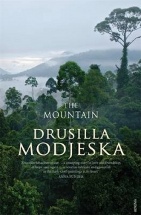The Mountain by Drusilla Modjeska

Vintage Books, 2012. ISBN 9781741666502.
(Age: Senior secondary - adult) Highly recommended. Papua New Guinea
is often overlooked by Australians in spite of its geographical
proximity and close historical and political ties. Australia was the
colonial administrator whose influence the inhabitants tried to
throw off at Independence. However, the links between the mountain
men and Australian soldiers in WW2 have become further immortalised
by the increasing tourism to the Kokoda Track.
The (fictitious - but representative) mountain of Drusilla
Modjesta's title is set not far from Kokoda on the largest island of
New Guinea. Europeans Rika and Leonard lived in Port Moresby during
the late sixties and early seventies. As an anthropologist, Leonard
spent time on the mountain and his film became a seminal account of
traditional life and its change caused by newcomers. Rika falls in
love with indigenous Aaron, an upcoming leader who is the hope of
Independence. There is foreboding about the length of his life.
Jericho, the child of Leonard and a mountain woman, is given as a
'gift child' to Rika and Aaron, who can't have children. The second
part of the narrative focuses on Jericho, who is the product of a
life brought up in London and the art world but who is searching for
his whole identity. He recognises the quality of the bark-cloth of
the high mountain villages.
The descriptions of art and place are linked with the surrealists.
Walking into one scene is described as being inside a Max Ernst
painting. Modjeska knows her art - she wrote the acclaimed Stravinsky's
Lunch about two Australian artists living at opposite ends of
the world.
The Mountain is a rich, sensory epic. It will enlighten those
who know little about Papua New Guinea - a place of contrasts, 'the
treachery of paradise'. The English curriculum encourages the use of
texts which engage with Asia. While definition of the countries of
Asia is contested, the Pacific Islands/Oceania is included by ACARA
and so parts of The Mountain would be useful in schools, although it
is ideally aimed at adults or mature secondary students.
Joy Lawn